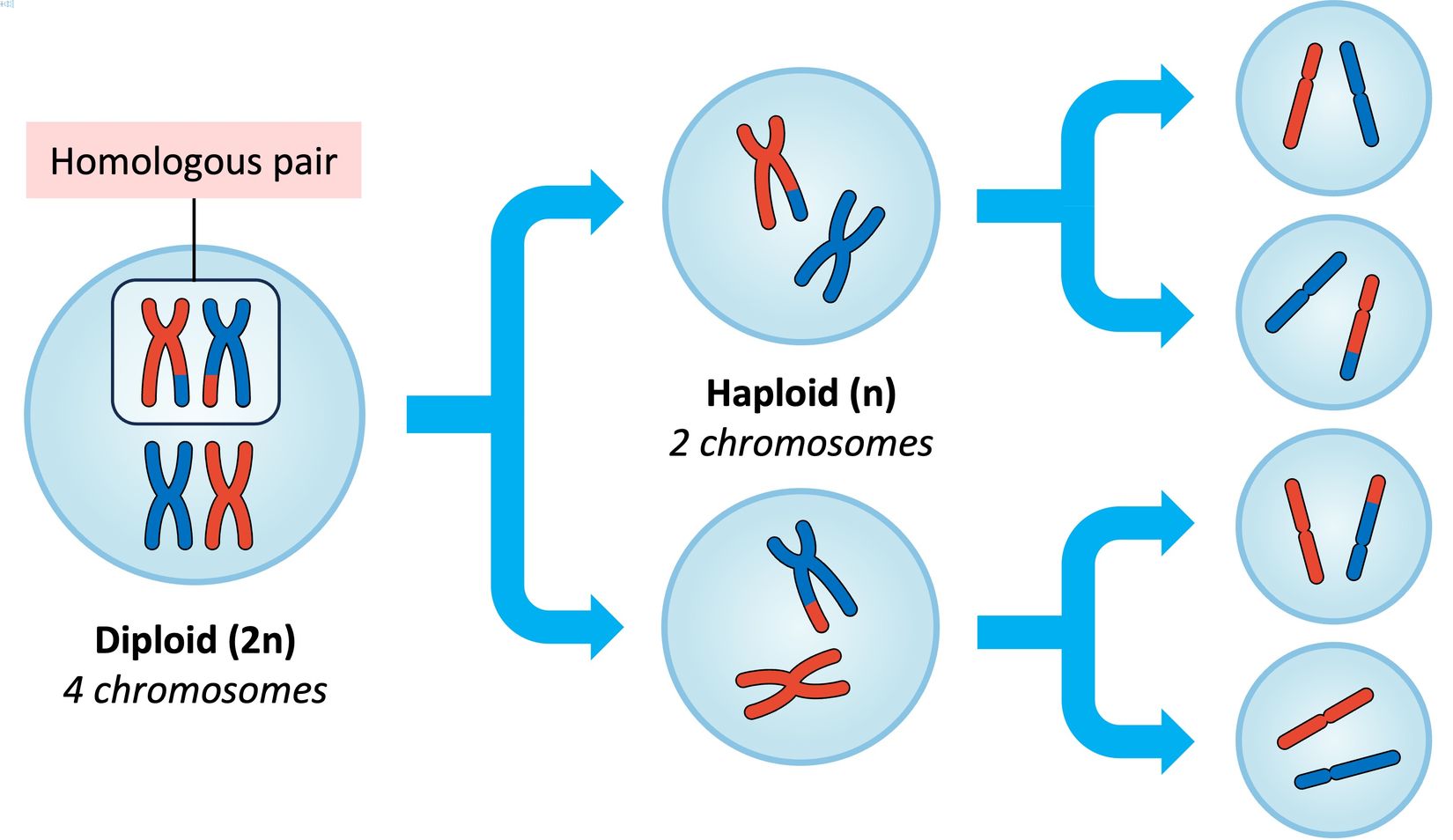Dive into the fascinating world of meiosis, the process that ensures genetic variation and continuity of life. This quiz will challenge your understanding of the stages, mechanisms, and significance of meiosis in biology. Good luck, and may your knowledge multiply!
We recommend that you do not leave the page that you are taking this quiz in. Stay honest 🙂
Meiosis Quiz Questions Overview
1. What is the primary purpose of meiosis?
To produce identical daughter cells
To produce gametes with half the number of chromosomes
To repair damaged DNA
2. During which phase of meiosis do homologous chromosomes separate?
Prophase I
Metaphase I
Anaphase I
Telophase I
3. What is the result of crossing over during meiosis?
Two identical daughter cells
Increased genetic variation
Reduction in chromosome number
Formation of spindle fibers
4. How many daughter cells are produced at the end of meiosis?
One
Two
Three
Four
5. Which stage of meiosis is characterized by the formation of tetrads?
Prophase I
Metaphase II
Anaphase II
Telophase I
6. What is the significance of independent assortment in meiosis?
It creates identical daughter cells
It ensures equal distribution of cytoplasm
It increases genetic variation
It repairs DNA damage
8. What is synapsis, and when does it occur?
Pairing of sister chromatids during Prophase II
Pairing of homologous chromosomes during Prophase I
Separation of homologous chromosomes during Anaphase I
Formation of the spindle apparatus during Metaphase I
9. What is the difference between meiosis I and meiosis II?
Meiosis I produces diploid cells, meiosis II produces haploid cells
Meiosis I involves crossing over, meiosis II does not
Meiosis I separates sister chromatids, meiosis II separates homologous chromosomes
Meiosis I produces four cells, meiosis II produces two cells
10. Which of the following is a key difference between mitosis and meiosis?
Mitosis results in four cells, meiosis results in two
Mitosis produces genetically identical cells, meiosis produces genetically diverse cells
Mitosis occurs in gametes, meiosis occurs in somatic cells
Mitosis reduces chromosome number, meiosis maintains chromosome number
We recommend that you do not leave the page that you are taking this quiz in. Stay honest 🙂
Can Your Friends Do Better Than You in This Quiz?
Share this quiz with your friends and compare results.
Was this page helpful?
More Popular Biology Quizzes:
-
Tissue Identification Quiz
-
Epithelial Tissue Quiz
-
Skull Anatomy Quiz
-
Tissues Quiz
-
Transcription and Translation Quiz
-
Shoulder Anatomy Quiz











